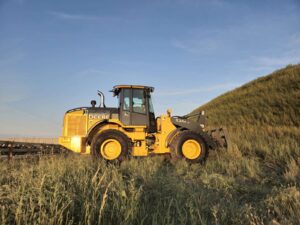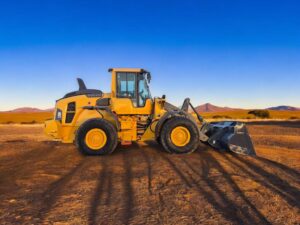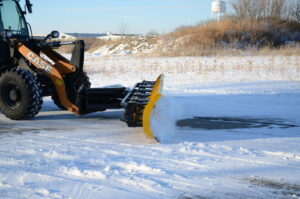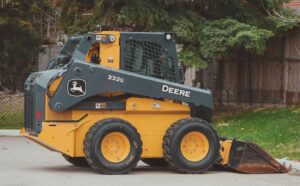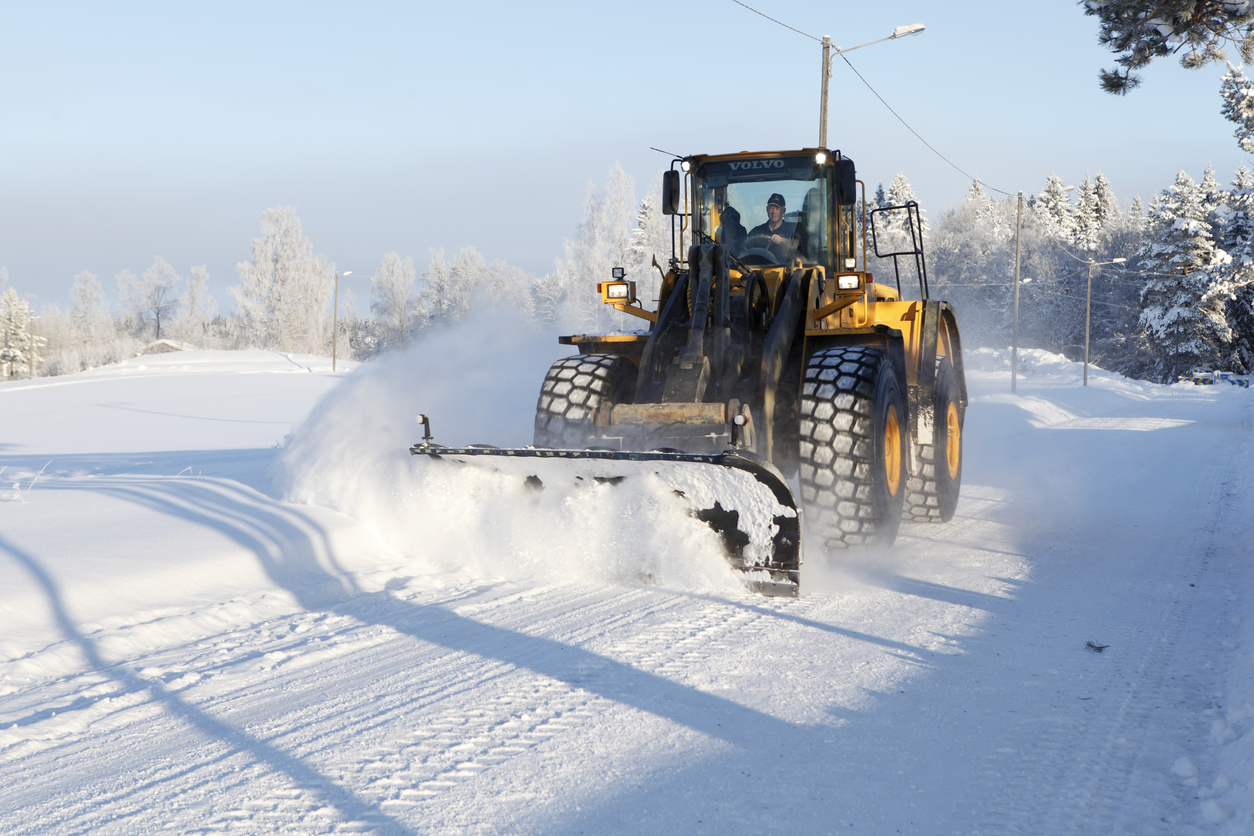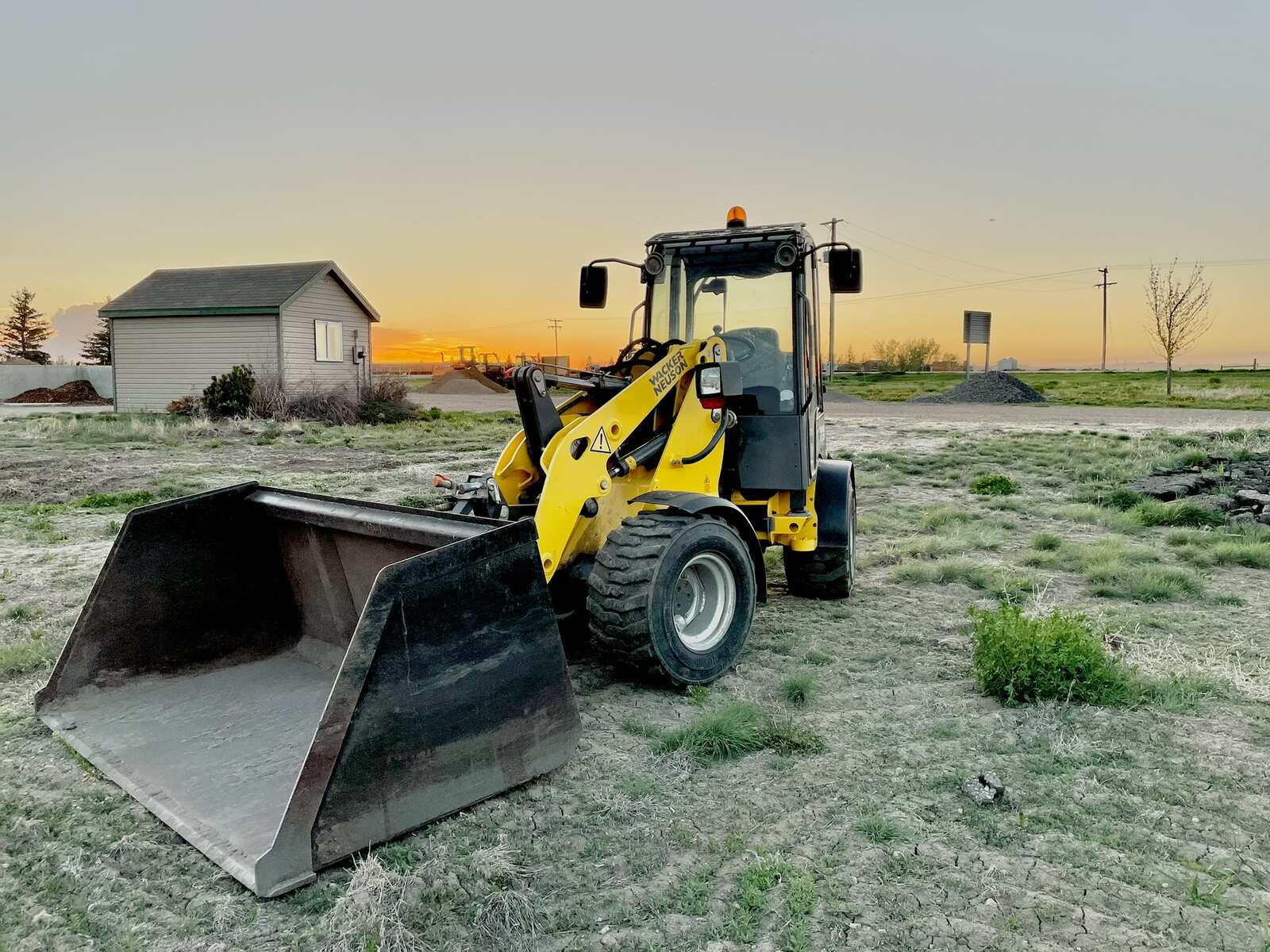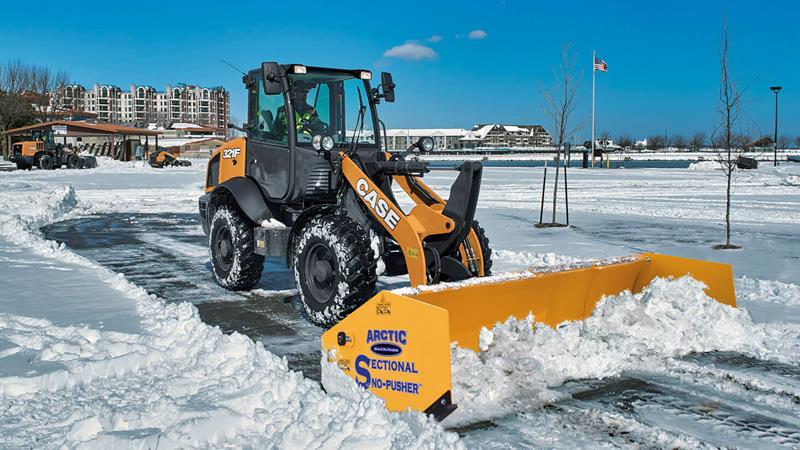Choosing the right loader brand in Western Canada can feel overwhelming with so many options on the market. Beyond specs, you need to think about service support in your area, parts availability, lead times, efficiency, attachment compatibility, reliability,rate of depreciation, and resale value. Each of these factors directly impacts your uptime, operating costs, and crew productivity. Here, we’ll break down what matters most and show you how to avoid downtime, hidden costs, and the wrong equipment choice.
Table of Contents
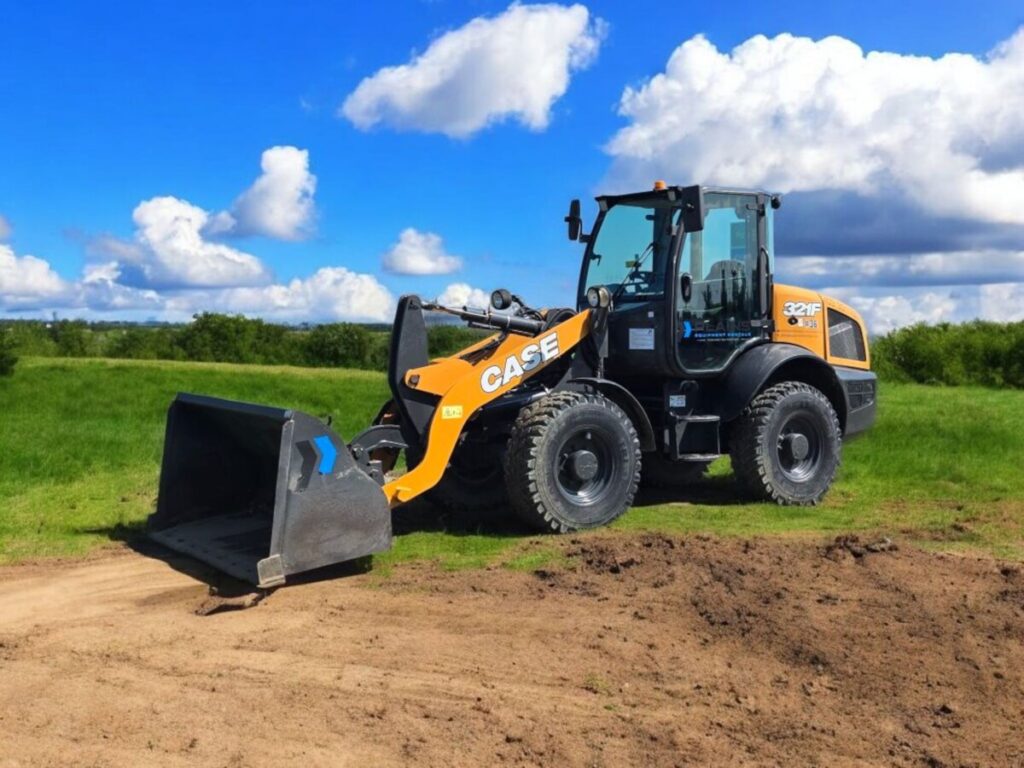
Choosing the Right Loader Brand in Western Canada
Selecting the perfect wheel loader for your specific requirements can be daunting with the many brands available in the market. From industry giants like Cat, John Deere, Case Komatsu and Volvo to emerging players such as XCMG, Sany Takeuchi, Doosan, JCB and Wacker Neuson each brand offers its unique features and benefits. Below. we will dive deeper into the six essential factors you should consider when choosing a brand of Wheel Loader.
Service Locations and Parts Availability
The proximity and quality of service locations play a crucial role in the overall ownership experience of a compact loader. Before deciding, research the availability of authorized service centres in your area. Having a nearby service location can significantly reduce downtime in repairs or maintenance. Furthermore, consider the reputation of these service centres. Reading customer reviews and seeking recommendations from industry peers can provide insights into the level of expertise, responsiveness, and overall satisfaction with the brand’s service network.
In addition to service locations, it is vital to assess the availability and accessibility of parts for the specific brand of compact loader you are considering. A robust parts supply chain ensures that you can source components quickly and at a reasonable cost. Explore whether the brand offers an extensive network of dealers and distributors or if they provide online platforms for convenient parts ordering. Availability of parts is essential to minimize equipment downtime and ensure efficient operations.
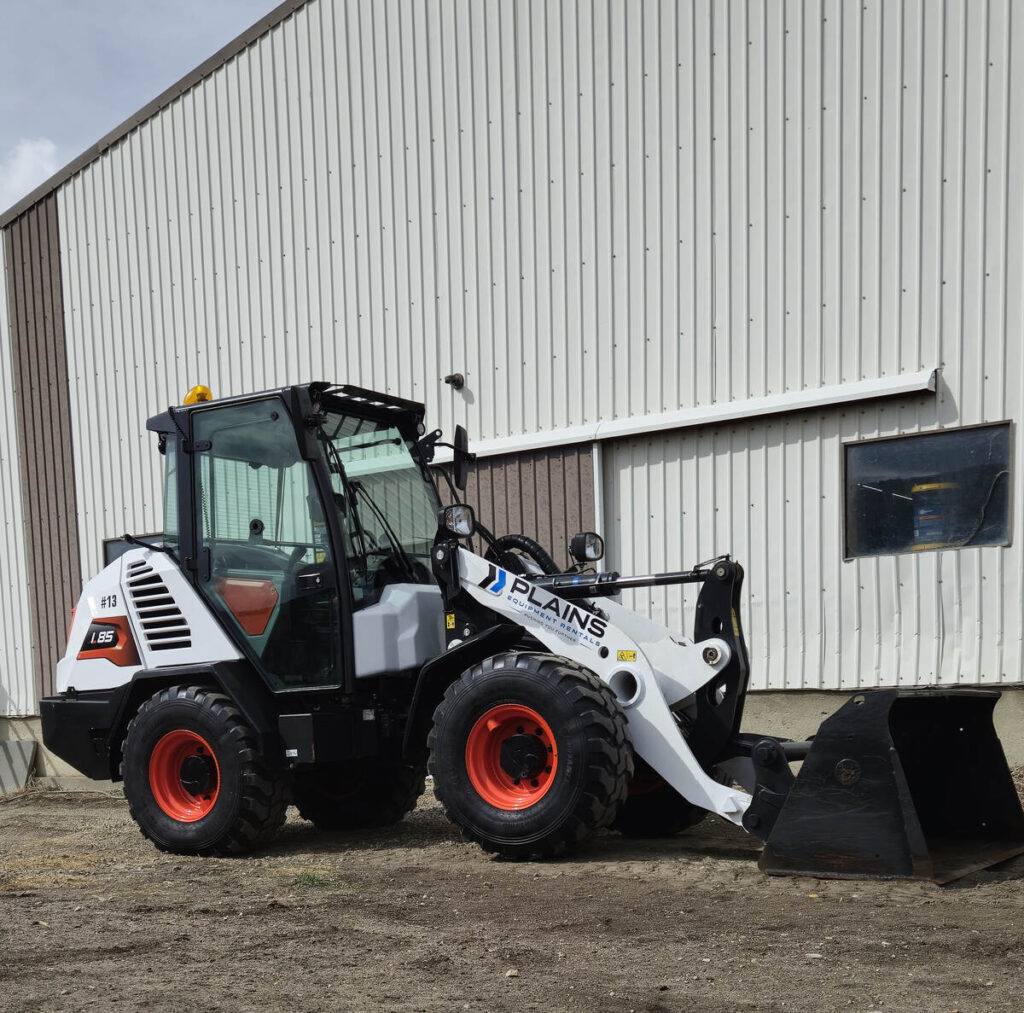
Lead Times and Availability
When you’re comparing loader brands, one factor often overlooked is how long it will take to actually get the machine on your job site. Major brands like Cat, John Deere, and Case often have strong demand, which means new equipment orders can take several months to arrive. Smaller brands like Kubota or Takeuchi may have shorter lead times, but supply chain issues and regional dealer stock can still cause delays.
For contractors in Western Canada, long lead times translate into idle crews and lost productivity, something most projects can’t afford. This is where renting changes the game. With Plains Equipment Rentals, you can get the machine you need delivered, on demand, without waiting weeks or months for a dealer to fill an order.
If you’re deciding between brands, factor in not just the specs and pricing but also when you’ll realistically get the machine. Owning might tie up capital and leave you waiting. Renting eliminates that downtime and keeps your projects moving.
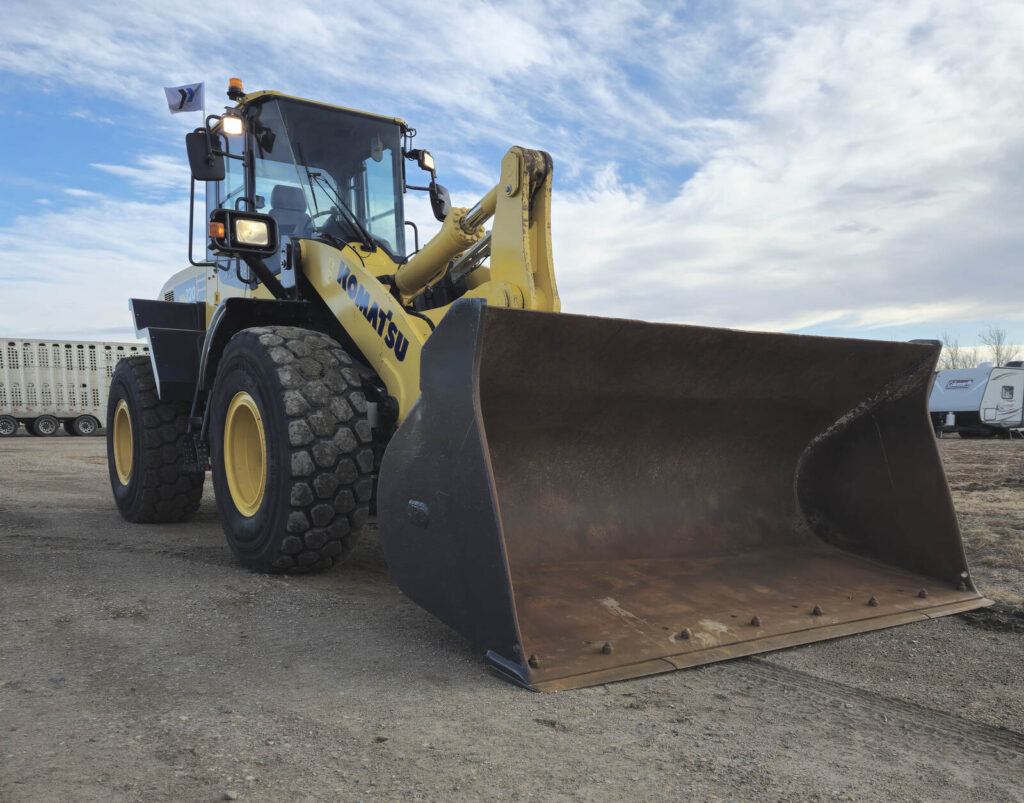
Fuel Type and Efficiency
Fuel choice isn’t just about what makes the engine run, it directly impacts operating costs, reliability in cold weather, and long-term performance.
Diesel Loaders
Still the most common on Canadian job sites. Diesel engines are known for their torque and durability, which is critical for heavy lifting and long shifts. They perform reliably in extreme cold when paired with the right block heaters and winter fuel blends. Downsides: higher upfront cost and tighter emissions regulations that require DEF (diesel exhaust fluid) and more maintenance.
Hybrid Loaders
Some manufacturers now offer hybrid systems that cut fuel use by combining diesel with electric assist. These machines can reduce fuel consumption by 10–25%, which adds up fast on large projects. They’re quieter on-site and often qualify for government sustainability incentives, but they come with a higher purchase price and fewer mechanics familiar with servicing them.
Fully Electric Loaders
Growing in popularity for urban and indoor applications where emissions and noise are a concern. They’re efficient, quiet, and nearly maintenance-free on the engine side. However, in Western Canada’s climate, battery range can drop significantly in freezing weather, and charging infrastructure is still limited. That makes them less practical for remote or heavy-duty winter jobs.
Why it Matters for Contractors
Fuel type is one of the biggest contributors to operating costs over a machine’s lifetime. A diesel loader might burn through 8–12 gallons an hour, while an electric loader shifts costs to charging and downtime for recharging. The “cheapest upfront” brand isn’t always cheapest to own or run.
How Renting Helps
If you’re weighing diesel vs hybrid vs electric, renting first lets you test real-world fuel costs and performance before committing to a purchase. At Plains Equipment Rentals, you get a machine that’s already been maintained and winterized for Western Canada, with no long-term risk if the fuel type doesn’t suit your projects.
Quick Attach and Auxiliary Hydraulics
The compatibility of attachments with your compact loader is crucial for maximizing its versatility and productivity. Some brands offer a common quick attach system, while others may have their proprietary couplers. Opting for a brand that utilizes a widely adopted quick attach system, such as the Volvo-Hi vis coupler,JRB 416 or the skid steer style coupler, can provide advantages. Common quick attach systems offer a broader range of attachment options, a competitive market for used attachments, and more excellent resale value due to broader compatibility.
In addition to quick attach systems, consider the availability of auxiliary hydraulics on the loader. Auxiliary hydraulics allow you to connect various hydraulic-powered attachments, expanding the capabilities of your machine. Whether pipe grapples, snow blades, or bucket grapples, having auxiliary hydraulics ensures you can tackle diverse tasks efficiently.
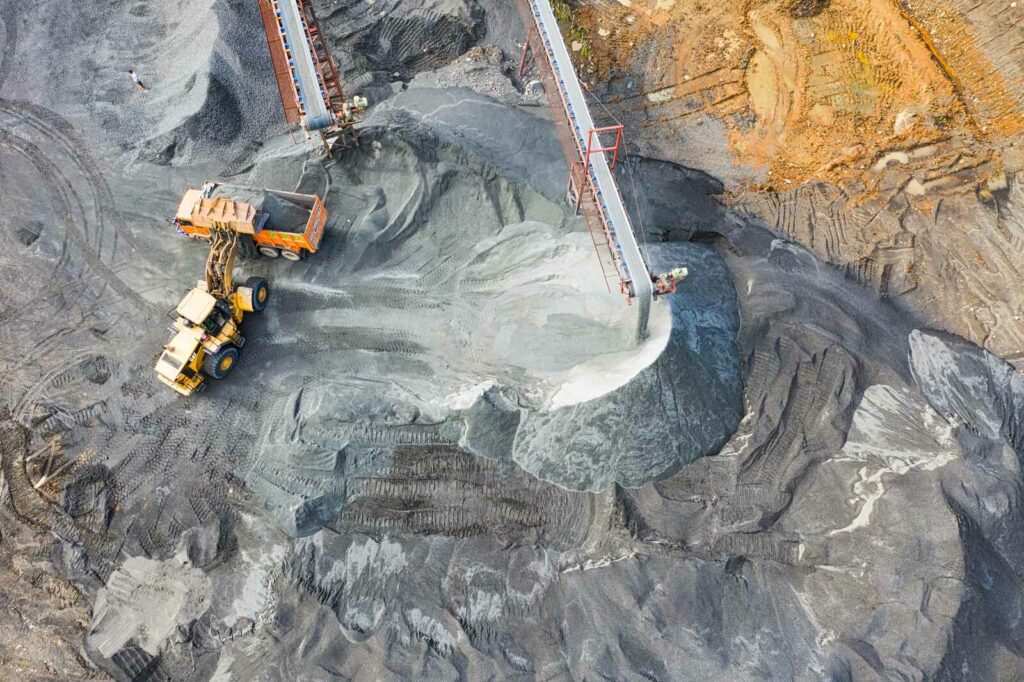
Wheel Loader Brand Consistency
If you already have a fleet of equipment from a particular brand, it may be worth considering the same brand for your compact loader. Brand consistency offers several advantages. Firstly, it promotes familiarity as the control systems, operation principles, and maintenance procedures are often similar across equipment categories. This familiarity can reduce the learning curve for operators and streamline maintenance processes.
Secondly, choosing a brand that aligns with your existing equipment allows you to leverage your established relationship with the brand’s dealership. You may already have insights into their service quality, parts availability, and overall customer support. Additionally, some parts may be interchangeable between machines, simplifying inventory management and decreasing equipment downtime.
Wheel Loader Reliability and Model Comparisons
No matter which brand you’re considering, reliability is what keeps your job moving. The wrong loader can turn into constant downtime, while the right model becomes the workhorse you trust season after season.
Across the industry, a few compact and mid-size loaders consistently earn a reputation for reliability:
- John Deere 524-624 – Known for strong build quality, excellent dealer support, and winter-ready performance.
- Case 521 and 621 – Priced right, USA made, with smooth controls and solid parts availability across Western Canada.
- Case 221 and 321 – Popular for its user-friendly cab and ease of maintenance, with versatile attachment compatibility.
- Komatsu WA200 and 270 – Reliable Japanese engineering, praised for its reliability and simplicity.
These models aren’t the only choices, but they highlight what experienced contractors look for: machines that start in -30°C, run long shifts without breakdowns, keep parts easy to source and have great resale value.
Why This Matters for You
Even the most “reliable” machine on paper doesn’t mean much if it’s stuck on backorder or sitting idle during a breakdown. Instead of tying up capital or waiting months for a new purchase, renting from Plains Equipment Rentals gets you a proven, well-maintained loader on-site right away. No six-figure commitment. No waiting. Just a machine that works when you need it.
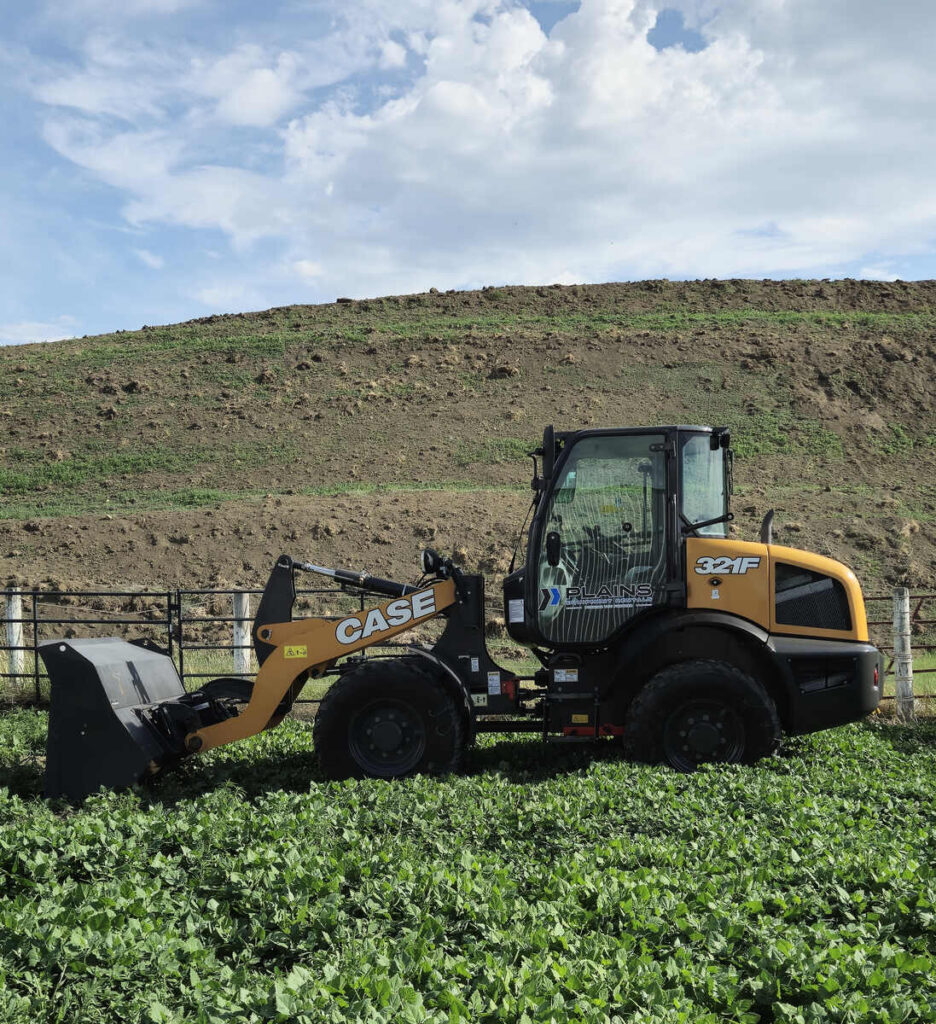
Industry Recommendations
One of the most valuable resources for gathering insights is consulting industry professionals and peers with hands-on experience with different compact loader brands. Reach out to individuals in your industry who are already using a particular brand of the compact loader and ask for their honest feedback. Their experiences can provide valuable information about the pros and cons of different models, potential issues to watch out for, and the overall satisfaction level with the brand.
When seeking industry recommendations, ask specific questions about breakdown frequency, winter starting capabilities, suitability for different job applications, service and parts support, and overall comparison with other loaders in the market. Gathering multiple opinions will help you paint a comprehensive picture and make an informed decision.
Questions to Ask Before Choosing a Supplier
Beyond brand specs and dealer promises, the supplier you choose can make or break your experience. Before signing anything, ask these blunt questions:
What’s your average delivery time?
In-stock loaders and attachments are usually delivered same day or next day across Alberta and Saskatchewan.
- Regional/remote sites: typically 24–72 hours depending on distance, weather, and road bans.
- Urban corridors: often same day if you book before noon.
- Snow events: we prioritize active snow contracts.
You’ll get a confirmed delivery window and a call when the truck rolls out. If anything shifts because of weather or highway closures, we tell you right away and give you the next available slot.
Do you provide on-site service and maintenance?
Yes. We handle all scheduled maintenance and field service for rentals.
- If a machine has an issue, call your Plains contact. We dispatch a tech.
- If we cannot get you running fast, we swap the unit.
- All machines are winter-ready for Western Canada: block heaters, correct fluids, and proactive inspections.
You keep crews moving. We keep the iron running.
Are there hidden fees or surcharges?
No. We quote everything up front and it matches your invoice.
Your quote clearly shows:
- Delivery and pickup line items.
- Optional Rental Protection Plan (RPP) at 15% of the rental fee. It covers accidental damage and theft with conditions. Exclusions include misuse or negligence, tire damage, and unauthorized repairs. Deductible is $500 or 10% of repair costs (whichever is less).
- Taxes.
- Rental rates, hours of usage, and overage charges.
That’s it. We do not add mystery admin fees or surprise shop charges.
Who will be my point of contact?
One person from start to finish.
You get a direct line to a Plains rep. No call centres. No ticket queues. The same person handles your quote, delivery timing, service calls, and pickup so you are never repeating yourself.
At Plains, these answers are straightforward. We deliver on time, every time, keep pricing 100% transparent, and give you one dedicated contact, no call centres, no surprises, no runaround.
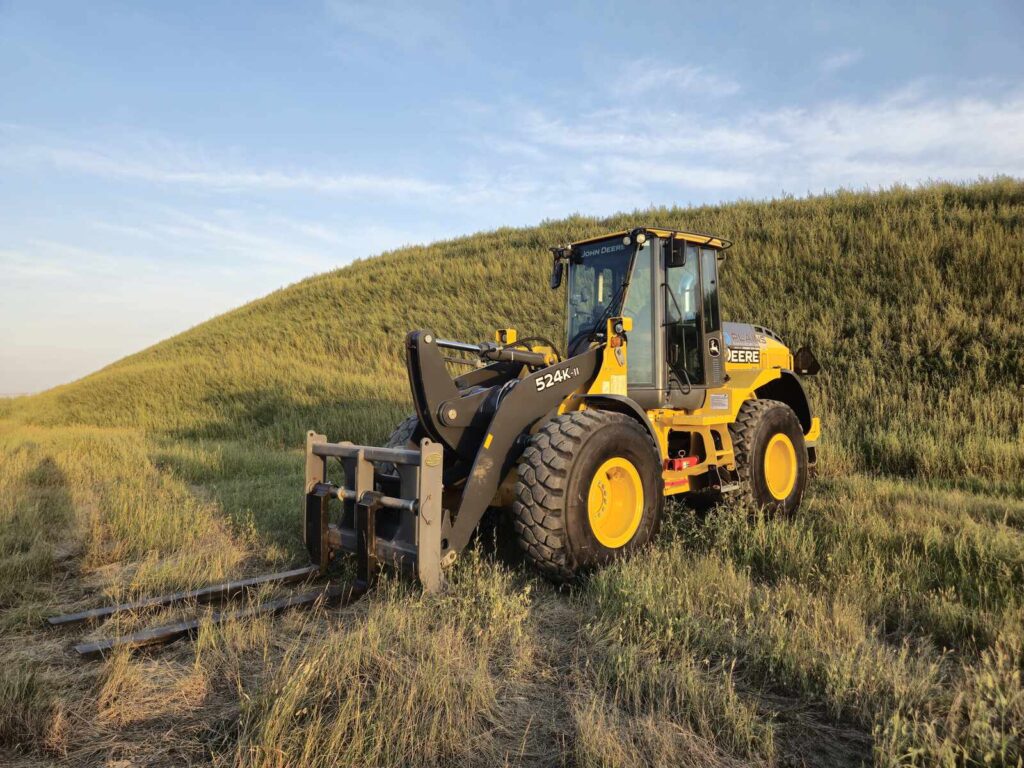
Making the Best Loader Brand Decision for Your Projects
Choosing the right brand of compact loader requires careful consideration of several factors, including service locations, parts availability, engine type, quick attach and auxiliary hydraulics, brand consistency, and industry recommendations. By thoroughly evaluating these aspects, you can select a compact loader that meets your needs, delivers reliable performance, and ensures optimal productivity. Remember, investing time in research and seeking advice from experienced professionals can save you significant costs and frustrations in the long run.


